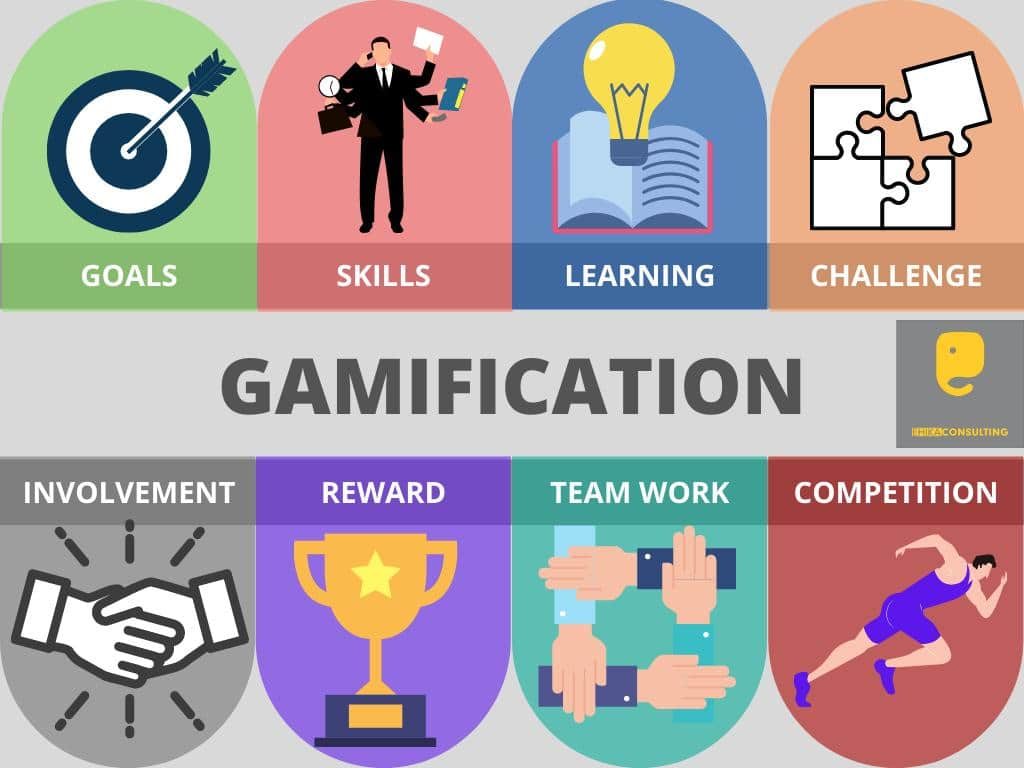Gamification is the use of game mechanics and experience to engage and motivate people to achieve their goals. Gamification strategy applies to more than just apps and games. The application of gaming metaphors in business helps to motivate employees, influence behavior, develop skills, drive innovation, enhance employee engagement, marketing efforts, and more. Gamification focuses on enabling players to achieve their goals. When organizational goals are aligned with player goals, the organization achieves its goals as a consequence of players achieving their goals.
Gamification leverages people’s natural tendencies for competition, achievement, collaboration, and charity. Tools employed in game design, such as rewarding users for achievements, “leveling up,” and earning badges, are carried into the real world to help motivate individuals to achieve their goals or boost performance.
Some of the problems gamification can solve:
- Learner engagement in workplace training
- Sales staff performance
- Ability to complete chores and mundane tasks
- Organisational productivity
- Ability to enter the ‘flow’
- Knowledge retention
- Recruitment issues
- Employee and customer retention
A typical training activity involves lecture style events, one to one tutorials, online notes, videos, power point presentations and so on. The challenge with all of these methods is that they rely on old school teaching methods. These are one of the many ways of delivering learning, even if there are questions and answers at the end of the session, the engagement is limited. Gamification helps to take the boredom out of long training sessions by gamifying the entire process. A training manual is replaced by an interactive game that allows participants to win awards and be acknowledged. Humans also learn faster by doing rather than seeing and hearing. Throughout childhood we learn through play, it is human nature. Gamification brings immense involvement of employees and it gives deeper and sustained understanding of the system.
In gamification kind of learning sessions, people play in teams, it involves lots of planning, strategy making, team work, using resources efficiently, achieving goals in time etc, which in turn are then applied to real life organizational goals.
Microsoft has released Ribbon Hero 2, to turn learning Office into an adventure. The game takes the player through various scenarios that require increasingly Advanced Office skills to solve. In addition to the game being fun, players are also encouraged to go further with a simple system of achievements, progressively unlocked levels and an overall score. The level and score are both displayed in the corner of all the Office applications. This is a great motivator to cross one more level.
Gamification is the future of learning specifically for leadership programs, team management, agile methodology and change management.

